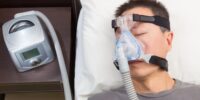Tips For Managing Diabetes During Travel And Holidays
Managing diabetes during travel and holidays can present unique challenges, but with proper planning and preparation, individuals can effectively manage their condition and enjoy their time away from home.
This article provides practical tips for individuals with diabetes to ensure a smooth and enjoyable travel experience while maintaining their blood sugar levels and overall health.
The importance of planning ahead, packing and organizing diabetes supplies, staying active, eating healthy, and managing stress and emotions are discussed.
Additionally, strategies for dealing with time zone changes, communicating diabetes needs to travel partners and accommodations, and being prepared for emergency situations are outlined.
By following these tips, individuals with diabetes can confidently navigate the demands of travel and holiday celebrations, allowing them to focus on enjoying their experiences while effectively managing their diabetes.
Key Takeaways
- Consult with healthcare provider before traveling
- Pack necessary diabetes supplies
- Maintain a balanced diet while traveling or during holidays
- Be prepared for emergencies
Planning Ahead for Your Diabetes Management
Proper planning ahead for diabetes management is crucial for individuals traveling or celebrating holidays. It is important to consider various factors in order to maintain optimal health and effectively manage diabetes while on the go.
Firstly, individuals should consult with their healthcare provider before embarking on any travel plans or participating in holiday festivities. This will ensure that their diabetes management plan is up to date and suitable for the specific circumstances.
Additionally, it is essential to pack all necessary diabetes supplies, including medications, blood glucose monitoring devices, and snacks. Adequate travel insurance that covers diabetes-related emergencies should also be obtained.
Moreover, individuals should research and plan their meals in advance, taking into consideration the availability of healthy food options and the timing of meals.
By planning ahead, individuals can significantly reduce the stress and potential complications associated with managing diabetes during travel and holidays.
Packing and Organizing Your Diabetes Supplies
To ensure seamless management of one’s condition while on the move, it is crucial to carefully pack and organize all diabetes supplies. This includes insulin, glucose monitoring devices, medication, and any other necessary equipment. Planning ahead and making a checklist can help ensure that all essential items are packed. It is important to consider the duration of the trip and pack enough supplies to last the entire duration, plus a few extra days in case of unexpected delays. Additionally, it is recommended to bring a prescription or letter from a healthcare provider, especially when traveling internationally, to avoid any issues with customs or security. By packing and organizing diabetes supplies in advance, individuals can have peace of mind knowing that they are prepared to manage their condition while away from home.
| Diabetes Supplies | Quantity |
|---|---|
| Insulin | 2 vials |
| Glucose Monitor | 1 |
| Test Strips | 50 |
| Lancets | 50 |
| Medication | 14 days |
| Syringes | 20 |
Staying Active and Managing Your Blood Sugar Levels
Engaging in regular physical activity while maintaining optimal blood sugar levels is essential for effective diabetes management. Exercise can help improve insulin sensitivity, lower blood glucose levels, and reduce the risk of long-term complications associated with diabetes.
It is important for individuals with diabetes to choose activities that they enjoy and are suitable for their fitness level. Moderate-intensity activities like brisk walking, swimming, or cycling can be beneficial. Before starting any exercise program, it is recommended to consult with a healthcare professional to ensure safety and to develop an individualized plan.
Monitoring blood sugar levels before, during, and after exercise is crucial to prevent hypoglycemia or hyperglycemia. Adjusting insulin or medication doses may be necessary to maintain stable blood sugar levels during physical activity.
Regular physical activity, combined with medication management and a balanced diet, can significantly improve diabetes control and overall well-being.
Eating Healthy While Traveling and During Holidays
When traveling or during holiday seasons, maintaining a nutritious diet can be a challenge, but it is crucial for individuals with diabetes to make mindful choices in order to manage their condition effectively. Eating healthy while on the go or during festive gatherings can help control blood sugar levels and prevent complications. Here are some tips for eating healthy while traveling or during holidays:
| Tips for Eating Healthy | Examples |
|---|---|
| Plan ahead and pack healthy snacks | Carrot sticks, apple slices, nuts |
| Choose restaurants wisely | Look for places with healthy options |
| Control portion sizes | Use smaller plates and avoid overeating |
| Avoid sugary drinks | Opt for water or unsweetened beverages |
| Read food labels carefully | Check for added sugars and carbohydrates |
Following these tips can help individuals with diabetes make mindful choices and maintain a healthy diet even when traveling or during holiday festivities.
Dealing with Time Zone Changes and Jet Lag
Dealing with time zone changes and jet lag can present challenges for individuals with diabetes who are traveling. The disruption of normal routines, including eating and sleeping patterns, can impact blood sugar control.
To manage these challenges, it is important for individuals with diabetes to plan ahead. Before traveling, they should consult with their healthcare provider to discuss any necessary adjustments to medication, insulin, or meal plans. It is also beneficial to gradually adjust sleep and meal times to align with the new time zone.
Staying hydrated and avoiding excessive alcohol and caffeine consumption can help regulate blood sugar levels. Regular physical activity can also aid in adjusting to the new time zone and relieving jet lag symptoms.
By taking these steps, individuals with diabetes can better manage their condition while traveling and minimize the impact of time zone changes and jet lag.
Communicating Your Diabetes Needs to Travel Partners and Accommodations
To ensure a smooth and accommodating travel experience, it is essential for individuals with diabetes to effectively communicate their specific needs and requirements regarding their condition to their travel partners and accommodations. This communication is crucial in order to receive the necessary support and assistance during their journey.
Here are three key points to consider when communicating with travel partners and accommodations:
-
Inform them about your diabetes diagnosis, providing basic information about the condition, such as its symptoms and potential complications.
-
Clearly explain your daily routine for managing diabetes, including medication schedule, dietary restrictions, and the need for regular blood glucose monitoring.
-
Discuss emergency protocols and make sure they are familiar with the signs of hypoglycemia and how to respond in case of an emergency.
By effectively communicating your diabetes needs, you can ensure that your travel partners and accommodations are well-prepared to support you throughout your trip.
Managing Stress and Emotions during Travel and Holiday Celebrations
One important aspect to consider is effectively managing stress and emotions while traveling and celebrating holidays. Stress can have a significant impact on blood glucose levels, making it crucial for individuals with diabetes to develop strategies to cope with stressors. Engaging in relaxation techniques such as deep breathing exercises or mindfulness meditation can help reduce stress levels. Additionally, staying active through physical activity can also help manage stress and improve overall well-being. Emotions can also play a role in diabetes management during travel and holidays. It is important to recognize and address any negative emotions that may arise, such as frustration or anxiety, and seek support from loved ones or healthcare professionals. Furthermore, maintaining a balanced diet and adhering to medication and blood sugar monitoring routines can help individuals with diabetes effectively manage their condition during these times.
| Strategies to Manage Stress and Emotions | ||||||||||
|---|---|---|---|---|---|---|---|---|---|---|
| Practice relaxation techniques | Engage in physical activity | Seek support from loved ones or healthcare professionals | ||||||||
| Maintain a balanced diet | Adhere to medication and blood sugar monitoring routines | Engage in mindfulness and meditation practices | Establish a daily routine and prioritize self-care activities | Find healthy outlets for emotions such as journaling or talking to a therapist | Stay informed but limit exposure to news and social media | Take breaks and allow yourself to rest and recharge | Practice positive thinking and gratitude | Seek professional help if needed and don’t hesitate to ask for support |
Being Prepared for Emergency Situations and Unexpected Challenges
Being prepared for emergency situations and unexpected challenges is essential for individuals with diabetes while traveling and celebrating holidays.
Diabetic individuals should always carry a diabetes emergency kit, which includes insulin, syringes, and blood glucose monitoring equipment. It is advisable to have a written emergency plan that outlines how to manage low or high blood sugar levels, as well as contact information for healthcare providers and emergency contacts.
It is also important to research and locate nearby medical facilities in case of emergencies. In addition, individuals should inform travel companions about their condition and educate them on how to assist in emergency situations.
Planning for unexpected challenges such as flight delays or dietary restrictions is crucial. This may involve packing extra medications, snacks, and water, as well as having a backup plan for meals.
By being prepared, individuals with diabetes can ensure their safety and enjoy their travel and holiday celebrations.
Frequently Asked Questions
How can I manage my diabetes while traveling to different time zones?
Managing diabetes while traveling to different time zones can be challenging. It is important to maintain a consistent meal and medication schedule, monitor blood glucose levels frequently, and adjust insulin doses as necessary with guidance from a healthcare professional.
What are some healthy snack options for traveling with diabetes?
Some healthy snack options for individuals with diabetes while traveling include fresh fruits, nuts, yogurt, and whole grain crackers. These options provide a balance of carbohydrates, protein, and fiber, which can help regulate blood sugar levels.
How can I effectively communicate my diabetes needs to my travel partners and accommodations?
Effectively communicating diabetes needs to travel partners and accommodations is crucial. Clear and concise communication should be established prior to the trip, including discussing dietary restrictions, medication schedules, emergency protocols, and the importance of regular blood sugar monitoring.
What are some strategies for managing stress and emotions during holiday celebrations?
Strategies for managing stress and emotions during holiday celebrations include practicing mindfulness, engaging in relaxation techniques like deep breathing, scheduling self-care activities, setting realistic expectations, and seeking support from loved ones or professionals.
What should I do in case of emergency situations or unexpected challenges while traveling with diabetes?
In case of emergency situations or unexpected challenges while traveling with diabetes, it is important to have a plan in place. This may include carrying a medical ID, keeping necessary supplies accessible, and knowing how to communicate with healthcare professionals.







